Wales’ Principality Stadium at 25: 'The Eras Tour'
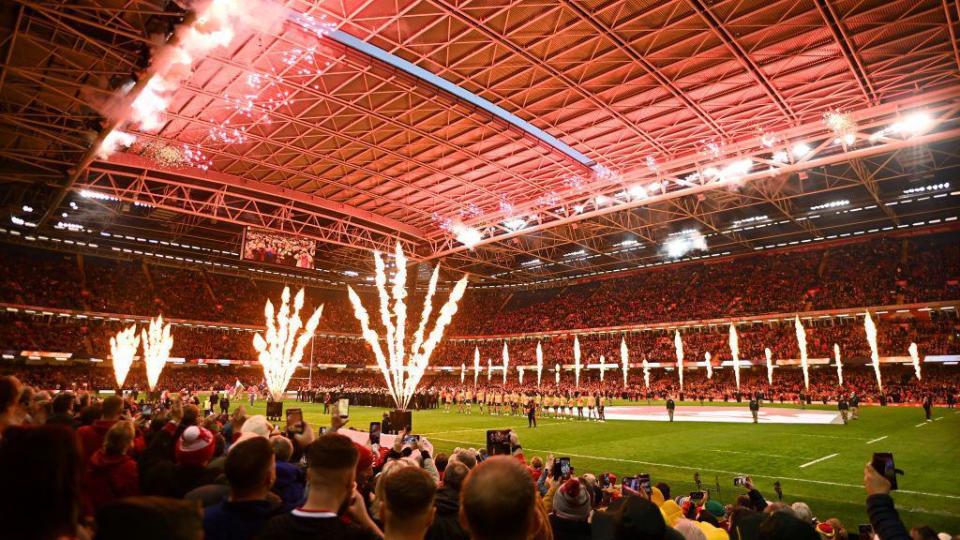
If you are ever lucky enough to walk through the meandering tunnels of the Principality Stadium, you will bear witness to the impressive array of sporting and music events staged there over the years.
Signed shirts, team photos and concert promotions line the walls before you reach the hallowed turf with 75,000 seats looking down on you.
Just last week Taylor Swift became the latest global icon to sell out the stadium, her Eras Tour the hottest ticket in town and only last night rock gods the Foo Fighters entertained another raucous audience.
And while the American singer-songwriter uses her latest concert to mark the ages of her career, this week offers an opportunity for Wales’ national stadium to do the same.
It was 25 years ago on 26 June when the then Millennium Stadium was officially opened in the heart of the Welsh capital. To the Swifties generation it is hard to envisage the Cardiff skyline not pierced by its iconic white masts.
Since 1999, the stadium has hosted global sporting events, from Six Nations Grand Slam showdowns, FA Cup finals, World title boxing bouts, a Rugby World Cup final and a Champions League final.
It has also been transformed for some of the biggest names in the music industry; the Rolling Stones, Madonna, the Spice Girls, Beyonce and Bruce Springsteen to name just a few.
Here we look at 25 memorable moments as the Principality celebrates a quarter of a century.
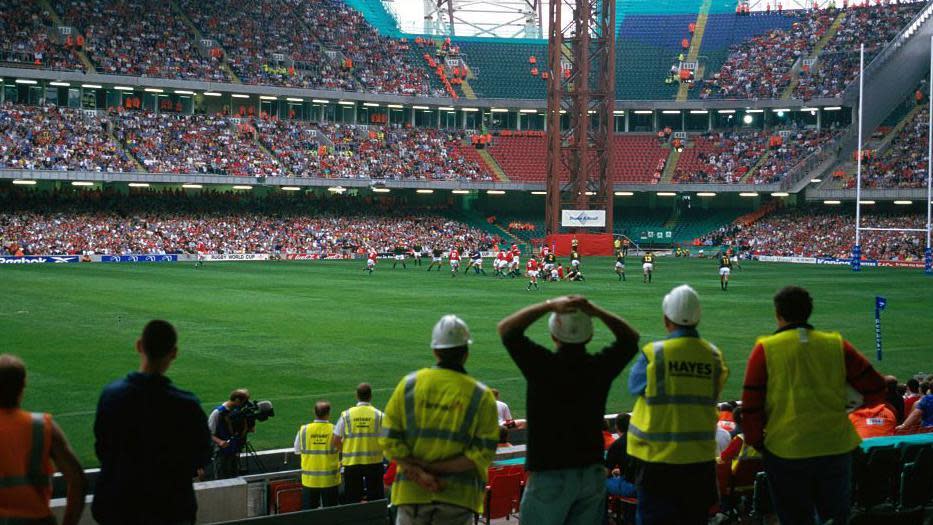
Wales beat the Boks - 26 June 1999
Only 27,000 fans witnessed Wales beating South Africa for the first time in their Test history.
The stadium was only half finished, work was going on around the clock to get it ready in time for the Rugby World Cup later that year.
The famous 29-19 win over the world champions was a worthy return for Graham Henry's Wales after playing home matches at Wembley for two years.
Neil Jenkins put his name in the history books as scoring the first points, with Mark Taylor crossing for the first try.
Aussies rule the world - 6 November 1999
The stadium was thankfully finished in time for the World Cup and who can forget Australia crushing France 35-12 in the final?
In doing so, the Wallabies became the first country to lift the trophy twice.
Full-back Matt Burke enjoyed a kicking haul of 25 points, with Waltzing Matilda ringing out long into the Cardiff night.
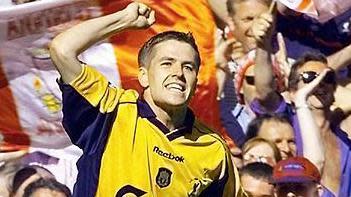
Liverpool late shows - 12 May 2001 and 13 May 2006
The Millennium Stadium hosted six FA Cup finals between 2001 and 2006 while Wembley was rebuilt.
It proved a happy hunting ground for Liverpool, starting with a smash-and-grab raid against Arsenal.
The Gunners led 1-0, but Michael Owen scored twice in the last eight minutes to complete a thrilling comeback.
Five years later, Steven's Gerrard's 35 yard wonder strike broke West Ham hearts.
At 2-1, the Hammers had one hand on the trophy until Gerrard's 90th minute equaliser forced extra-time and then penalties, which Liverpool won courtesy of Pepe Reina's heroics in goal.
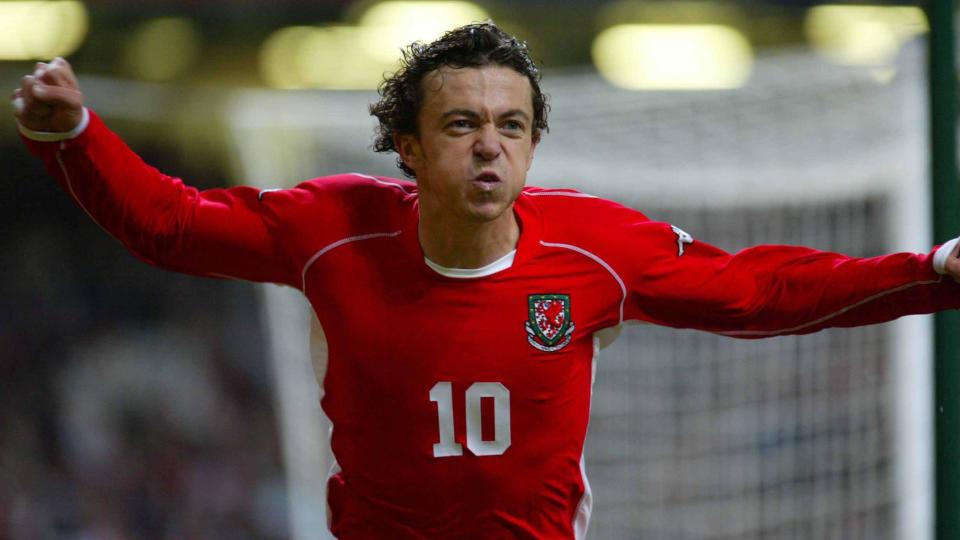
The Italian Job - 16 October 2002
Mark Hughes' Wales enjoyed a memorable 2-1 victory over Italy in a Euro 2004 qualifier.
Captained by Gary Speed, Simon Davies opened the scoring before Alessandro Del Piero levelled.
Craig Bellamy's emphatic winner ensured Wales beat a top footballing nation in a competitive game for the first time in 11 years.
Wales finished runners-up in the group, but hopes of making a first major championship since 1958 were dashed by Russia in the play-offs.
Wales would have to wait another 12 years to play in the Euros - but it was worth it!
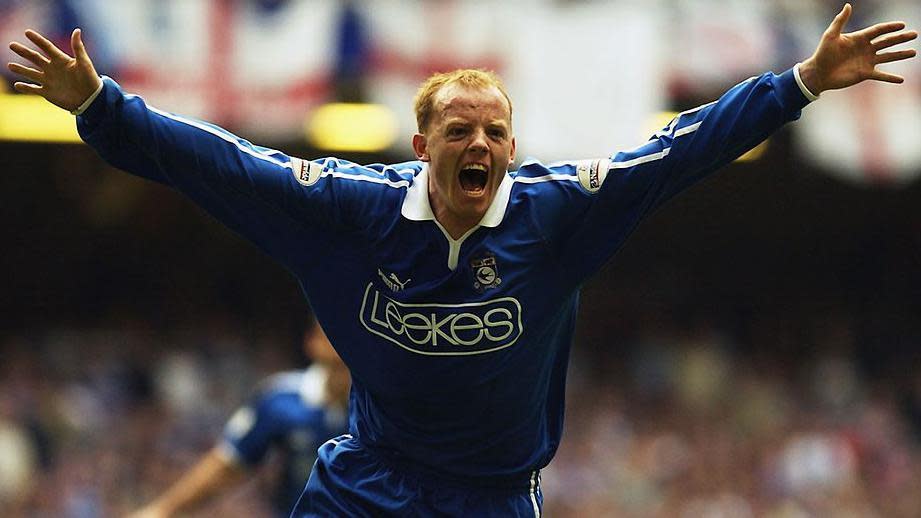
Home town play-offs – 25 May 2003
Cardiff City secured promotion to the old First Division after an 18-year absence with a 1-0 win over Queen's Park Rangers.
There were just six minutes of extra time remaining when Cardiff substitute Andy Campbell calmly lobbed Chris Day to seal victory in front of a jubilant home crowd.
For 20 seasons since then, Cardiff City have played in the top two flights of English football, spending two years in the Premier League.
The Grand Slam charge - 19 March 2005
The 2005 Grand Slam is perhaps one of the most fondly remembered by Wales fans.
Just two years after the dreaded Six Nations wooden spoon, Mike Ruddock's side ensured a clean sweep with a 32-20 victory over Ireland.
Gethin Jenkins' charge down, Messi-like football skills and pace to get to the try line are now the stuff of prop legend.
Wales also sealed Grand Slams in Cardiff in 2008 and 2012 - but 2005 is one that will live long in the memory.
A rugby league cracker - 27 August 2005
Eight tries and a last-minute conversion to clinch victory - there have been few, if any, matches more dramatic at the stadium than Hull's Rugby League Challenge Cup win against Leeds.
Leeds, the overwhelming favourites, were beaten 25-24 in one of the competition's most memorable finals.
It was played in a city where only a decade earlier rugby league was the unmentionable "other" code played up north which took many of Wales' best rugby union players.
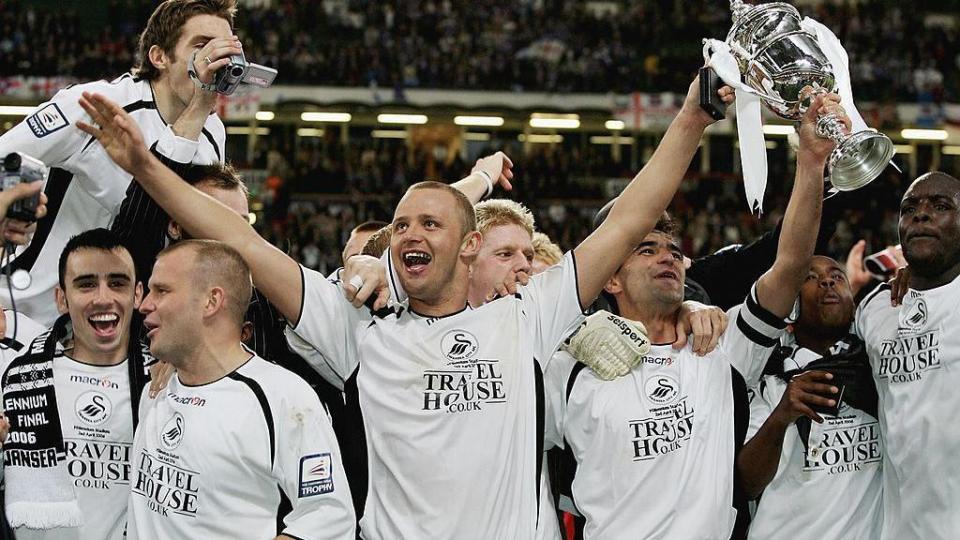
Trundle and T-shirts - 2 April 2006
Swansea City striker Lee Trundle had been the most talked about player outside the top two divisions leading into this Football League Trophy final.
It took just three minutes for Trundle to produce a top-class volley that gave the Swans the lead, and in the final stages he set up Adebayo Akinfenwa's winner.
Trundle's post-match celebrations got him in trouble though, he and Alan Tate were pictured wearing T-shirts and holding flags offensive to Cardiff City
The pair were cautioned by the police and received a fine and ban from the Football Association of Wales.
Grey day for the All Blacks - 6 October 2007
Playing in Cardiff despite being tournament hosts, France were given little chance in this World Cup quarter-final against hot favourites New Zealand, who were almost unrecognisable in grey kit.
But after facing the haka, France fought back from 13-0 behind to win 20-18.
Kiwi coach Graham Henry called it the "Train Crash at Cardiff", as the All Blacks failed to reach the semi-finals for the first time in the tournament's history.
Calzaghe's crowning moment - 3 November 2007
It was a night and a fight that secured Joe Calzaghe's place among the greats of British boxing.
The Welshman, then 35, gave the performance of a lifetime in his 44th outing, against Denmark's Mikkel Kessler, who Calzaghe says was his toughest opponent.
Both fighters were undefeated in a combined 82 bouts. Calzaghe held two super middleweight titles, Kessler had the others in a rare unification battle.
A crowd of 50,000 meant this was a far cry from the 2,800-capacity Wales National Ice Rink, where Calzaghe had fought several opponents, as the Welsh boxer sealed a unanimous points decision.
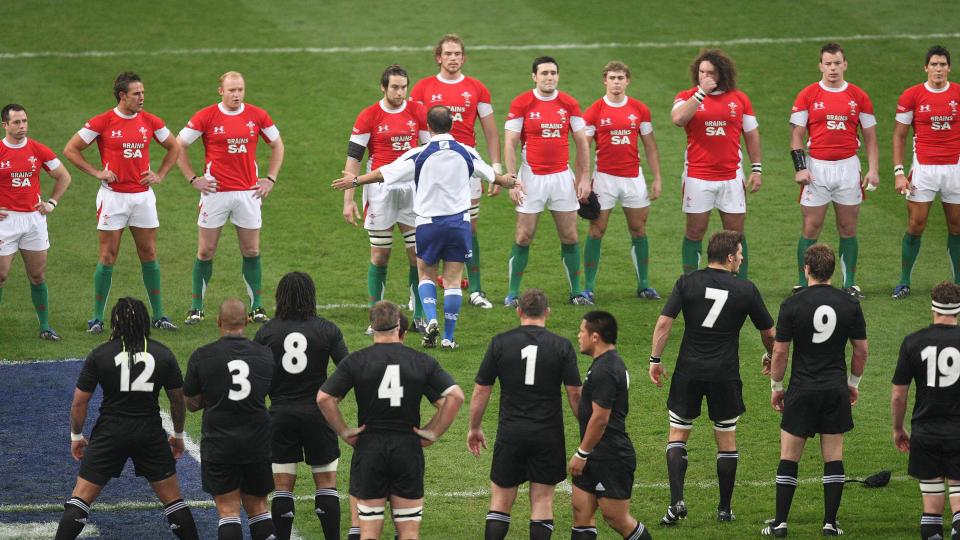
Staring down the haka - 22 November 2008
As sporting theatre goes, Wales staring down the New Zealand haka in 2008 takes some beating.
The teams stood eye to eye for what seemed an eternity before referee Jonathan Kaplan finally convinced them to take their starting places.
The hosts may have won the stand-off, but the 29-9 defeat that followed extended their long wait for a victory over the All Blacks that stretches back to 1953.
Ireland end decades of hurt - 21 March 2009
In 2009, Ireland celebrated their first Grand Slam since 1948 - and it all came down to the last two seconds.
An Irish team featuring the likes of Brian O'Driscoll, Paul O'Connell and Ronan O'Gara had promised much over the years, but failed to deliver when it mattered.
That changed on a dramatic day in Cardiff.
Wales were on course for the Triple Crown thanks to Stephen Jones' drop goal with five minutes to go, but O'Gara responded in kind to put his side on top of the Six Nations pile.
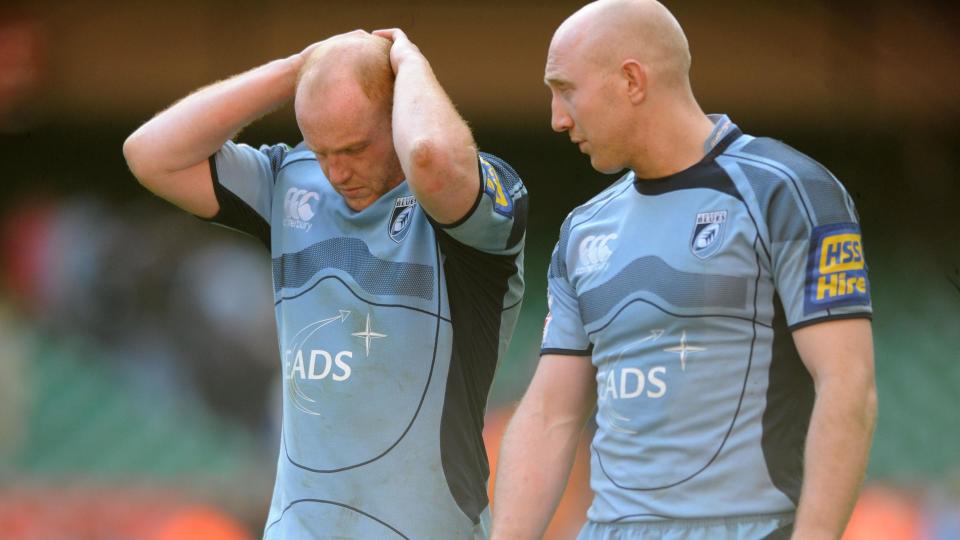
Rugby union's first shootout - 3 May 2009
Look away now Martyn Williams - professional rugby's first penalty shootout is one the Wales rugby great will want to forget.
Leicester and Cardiff Blues drew 26-26 in their Heineken Cup semi-final and could not be separated by extra time.
Cue a penalty shootout in front of the posts on the 22.
The specialist kickers safely navigated their shots until Leicester's Johne Murphy was first to miss. But Tom James saw his chance to seal victory for Cardiff fail.
The shootout continued and options running out, flanker Williams stepped forward.
A wild hook was the cruellest of blows and allowed Jordan Crane to win it for Leicester.
The greatest comeback - 13 February 2010
If you are ever thinking about leaving a game early, let this be a lesson to you!
Wales were 10 points adrift of Scotland in the 76th minute and staring down the barrel of defeat.
Some less optimistic home fans were already heading for the train as Dan Parks looked to have guided the Scots to a famous victory on Welsh soil.
But in a breathless finale, Wales went through phase after phase until Scotland finally ran out of defenders and Shane Williams darted under the posts to clinch a dramatic 31-24 win.
Never say die Leinster - 21 May 2011
It was not so much the points difference that led to the greatest comeback in Heineken Cup final history, but the way in which Leinster did it.
Northampton led 22-6 at the interval - and oh to be a fly on the wall in the Leinster changing room, because whatever Joe Schmidt said to his side sparked a devastating blitz.
Leinster scored 27 unanswered points inside 26 minutes to overrun the Saints and claim a second European Cup title in three years.
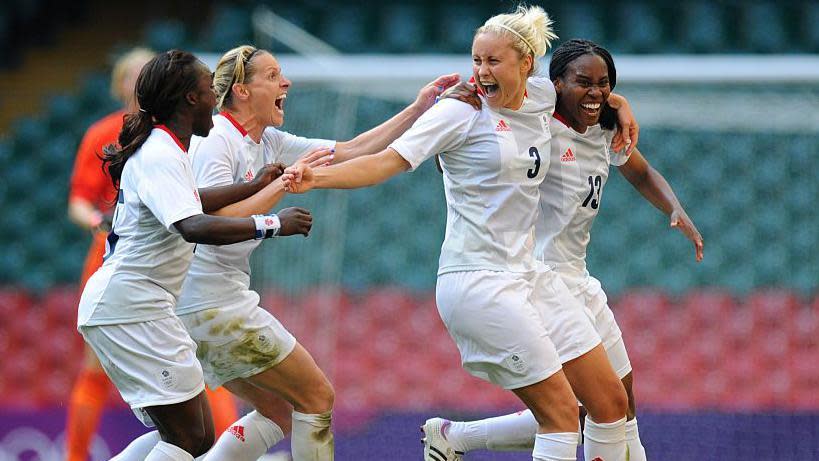
Olympics comes to Wales - 25 July 2012
Did you know the London 2012 Olympics actually started in Cardiff?
Before James Bond and the Queen had parachuted into the Olympic Stadium, Team GB's women's football team had beaten New Zealand 1-0 thanks to Steph Houghton's goal.
Other notable goal scorers in Cardiff during the tournament included Brazil's Marta and, in the men's tournament, Aaron Ramsey, Neymar and a then-unknown Mohamed Salah.
England's chastening finale - 16 March 2013
England arrived chasing a first Grand Slam in a decade, but they left Cardiff shell-shocked.
Ten of Stuart Lancaster's starting side had never played at the stadium and they were greeted by an electric atmosphere.
Wales, coached by Rob Howley with Warren Gatland on Lions duty, had a chance to snatch the title, but needed a winning margin of at least seven points.
Carried on a wave of noise and elation, Wales romped to a famous 30-3 victory.
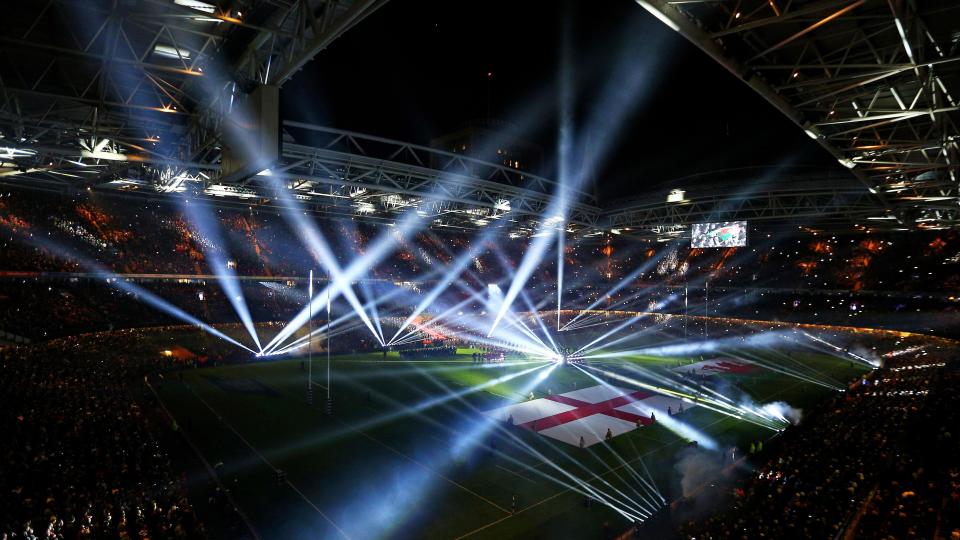
'Tunnelgate' - 6 February 2015
As if Wales v England on a Friday night in Cardiff was not dramatic enough, cue a stand off in the tunnel.
The stadium was cloaked in darkness with all eyes on the light of the tunnel - but no players emerged.
Knowing Wales enjoyed letting their opponents stew in a cauldron of noise long before making their appearance, England captain Chris Robshaw stood his ground and waited, and waited with the game delayed by six minutes.
England went on to win 21-16.
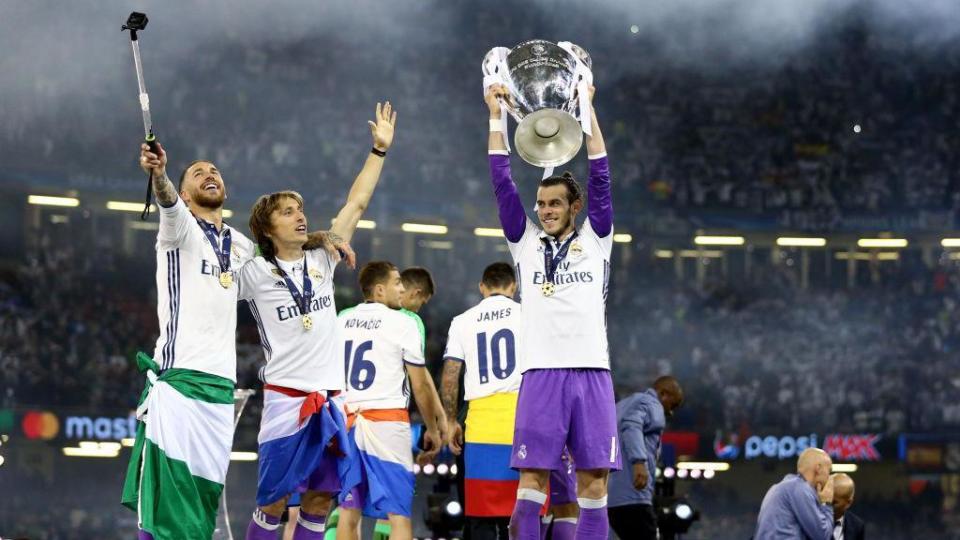
Real Madrid crush Juventus - 3 June 2017
Wales' national stadium was always intended to attract world-class sport to Cardiff and they do not come bigger than the Uefa Champions League final.
Despite his homecoming, Gareth Bale played only a bit-part as a second half substitute as Cristiano Ronaldo scored twice to see Real on their way to a 4-1 win and a 12th European title.
Bale would later have his moment though, scoring two goals in the 2018 final win against Liverpool.
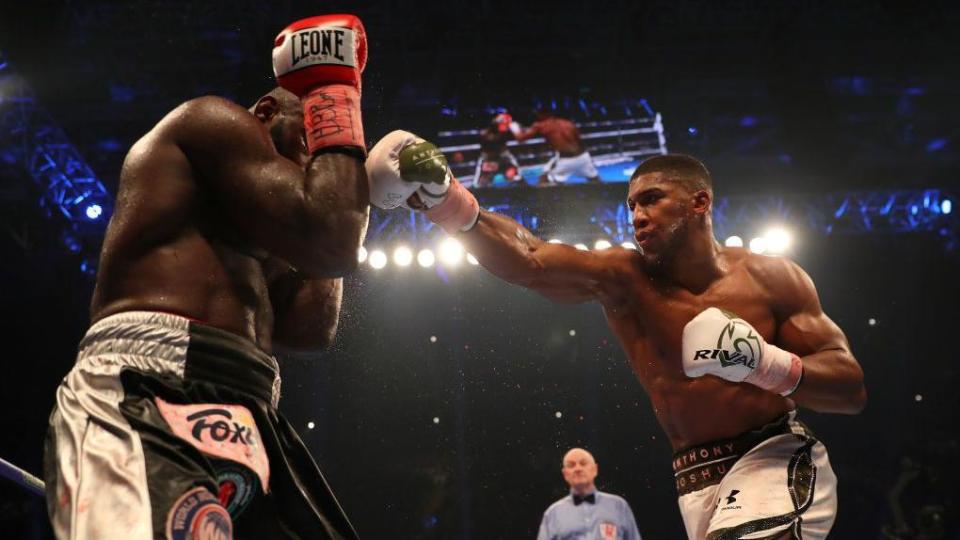
Heavyweight attractions – 28 October 2017 and 31 March 2018
Anthony Joshua was not the first heavyweight to fight in Cardiff, but he is among the biggest in terms of physical presence and drawing power.
Not since Lennox Lewis beat Frank Bruno at the old National Stadium in October 1993 had there been such a buzz about a heavyweight contest in the Welsh capital.
Joshua stopped Carlos Takam in front of an expectant crowd and the following March also beat Joseph Parker at a venue he describes as his "boxing home."
Grand Slam again - 16 March 2019
Wales celebrated a third Grand Slam in 11 years as they put Ireland to the sword in ruthless fashion.
Hadleigh Parkes scored an early try and from then on Gareth Anscombe's boot kept the score ticking over, with Jordan Larmour's late try no consolation as Wales triumphed 25-7.
Ireland had opted to keep the roof open, but the Cardiff rain did little to dampen Welsh celebrations.
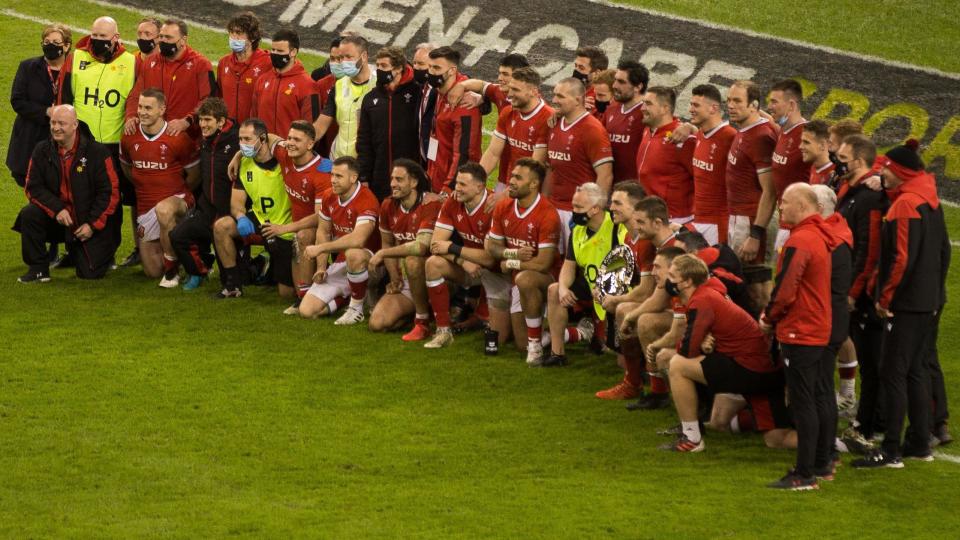
Controversial crown - 27 February 2021
The 2021 Six Nations was perhaps the most surreal of the championship so far.
An outbreak of Covid-19 was highly anticipated, but Wales coming to within a whisker of a Grand Slam was not.
Wales finished fifth in 2020 under new head coach Wayne Pivac, but found themselves unbeaten going into the final game against France.
Prior to that they claimed the Triple Crown with a 40-24 victory over England.
That match will be remembered for not one but two controversial Welsh tries.
Josh Adams scored from a quick penalty while Louis Rees-Zammit looked as surprised as anyone that a knock-on was not given in the build-up to Liam Williams' try.
Last-gasp penalty - 20 November 2021
Test matches between Wales and Australia are always captivating and this autumn encounter was no exception.
Ill-discipline proved costly for the Wallabies who were reduced to 14 players early on, but they got themselves back in the game.
Kurtley Beale looked like he had come back to haunt the hosts with a late touchline conversion, but Wales got their rewards with a last gasp penalty.
Replacement fly-half Rhys Priestland slotted over to secure the 29-28 win.
Woeful Wales - 19 March and 19 November 2022
Wales suffered not one, but two humiliating defeats which ultimately cost Wayne Pivac his job.
The first came against Italy in the final game of the Six Nations.
Edoardo Padovani scored after Ange Capuozzo's superb break, with Paolo Garbisi converting with the final kick of the match.
Josh Adams gave Capuozzo his man of the match medal afterwards.
Georgia rubbed salt in Wales' wounds by pulling off the finest result in their history during the autumn - again it was a late penalty which won the game.
Pivac was sacked in December and replaced by Warren Gatland.
Invading live interviews - 27 April 2024
Wales women were desperate to avoid the wooden spoon heading into their Six Nations finale against Italy.
It was the first time they played a standalone match at the Principality and there was a record crowd to see them grind out a 22-20 win.
It was far from a classic, but the way Wales celebrated afterwards will live long in the memory - players stormed head coach Ioan Cunningham's post-match interview before emptying the contents of a cool box over his head.
It may have seemed over exuberant, but after seven previous losses, the relief was clear to see.

 Yahoo Sports
Yahoo Sports 
